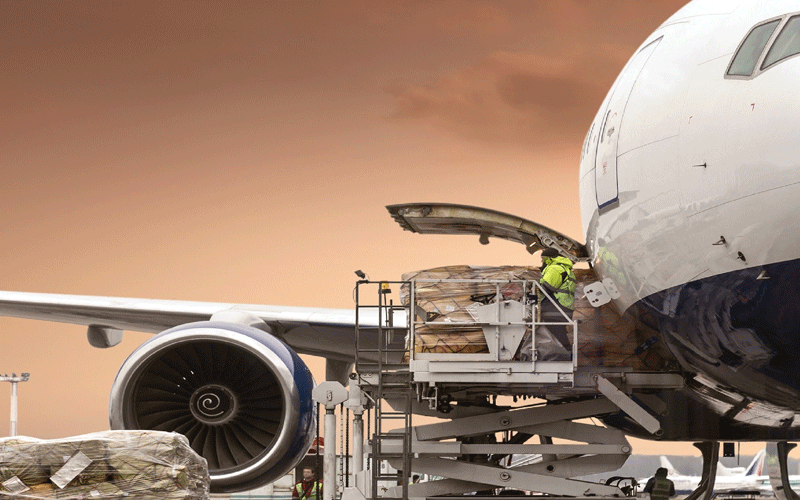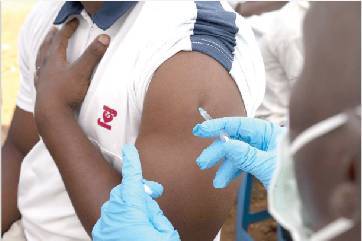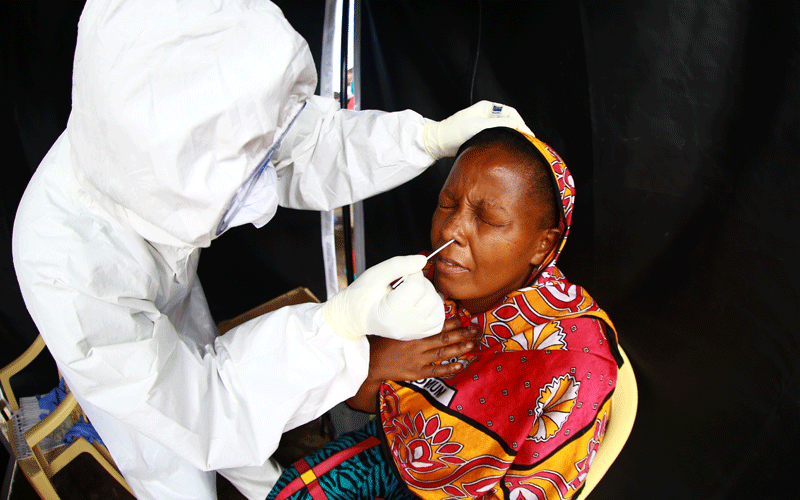Freight charges soar as demand for goods dips

Noel Wandera @NoelWandera5
Traders have raised the red flag over escalating air freight charges in the region amid low demand for cargo, due to disruptions in global supply chain as a result of the ravaging coronavirus disease.
East African Business Council executive director Peter Mathuki said many airlines are grounding their planes as governments lock down airspaces.
Air freight cargo charges to the EU and other markets in the last few weeks surged to an average of $3 (Sh 318.3) to $7 (Sh742.8) per kilogramme, up from an average of $1.5 (Sh 159.2) $2.5 (Sh 265.3) per kg.
The charges have affected air-lifting of fresh produce in the region with Mathuki calling for intervention.
In Kenya, for example, Mathuki said, the volume of fresh produce out of Jomo Kenyatta International Airport (JKIA) has reduced from a weekly 5,000 tonnes to 1,300, a 75 per cent decline with similar trends reported across the region.
“This is due to high air freight charges and operating costs, fewer scheduled/chartered flights and a supply and demand imbalance,” he added.
Critical goods
Despite the lockdown, which grounded passenger planes across the globe, cargo operations continued with several airlines among them Kenya Airways (KQ) even repurposing their passenger aircrafts as part of measures to enhance capacity to facilitate continuous delivery of critical goods.
“As we do things differently, we know that it is critical for essential goods to be transported. Today, KQ 2764 took off from Nairobi to Johannesburg packed with medical goods and essential items aboard one of our Dreamliners,” Kenya Airways said on Sunday.
There is, however, a sustained growth in the demand for fresh produce exports anticipated to last till the summer.
Current aviation industry subsidies in response to the Covid-19 crisis include State support through direct financing, loan guarantees, corporate bonds and tax reliefs.
However, Mathuki said these measures alone, even if extended to EAC airlines will not sufficiently address the current crisis.
“The current Covid-19 crisis on air cargo operations requires extraordinary measures to address the challenges in the region.
Like the EU, it demands greater co-operation between East African airlines and the international aviation community, including air cargo and express service providers to ensure the supply and fair distribution of scarce and essential goods,” he said.
Consequently, the EABC boss said in the immediate to short term, EAC Heads of State should facilitate the use of passenger aircraft for cargo-only operations, including the re-positioning of air cargo flight crews; promote consolidation of air freight and co-operation between EAC airlines and allow for flexibility in scheduling.
The council also wants the EAC encourage to coordination and equitable share for EAC airlines for both south and northbound freight, reduce operating costs by waiving landing fees, excise duty on aviation fuel, navigation, landing, parking and Covid-19 related fees.
Others are waiving all import duties and VAT by air to encourage imports by air and provide subsidies for the aviation industry in the form of direct financial support through loan guarantees, corporate bonds and tax reliefs.
World trade
Air cargo accounts for approximately 35 per cent of world trade by value and is a crucial part of freight transport, complementing both land and sea transport, for time-sensitive cargo.
The International Air Transport Association (IATA) has supported the industry to execute cargo operations and use of passenger aircraft to enhance connectivity.
World Health Organisation (WHO), International Civil Aviation Organization (ICAO) and IATA have also worked in close collaboration to develop aviation-specific guidelines to ensure appropriate planning and action at all levels to mitigate the effects of a human outbreak.
Together, these organisations have developed guidelines on how to transport cargo safely to ensure continued and uninterrupted air cargo services vital for global supply chains and emergency medical supplies.












